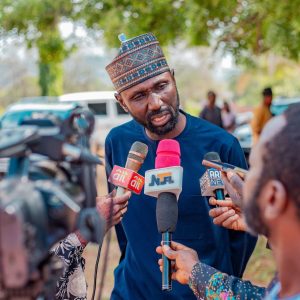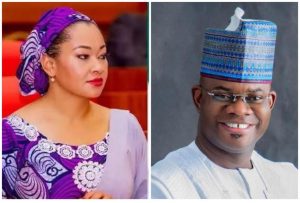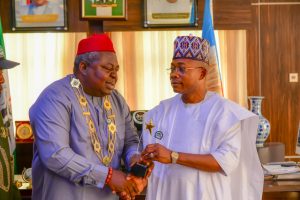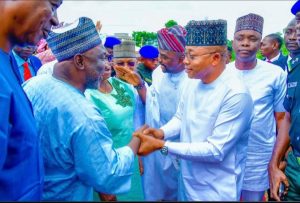Kogi Governor And The Hard Questions On The Adoption Of Direct Primaries By NASS
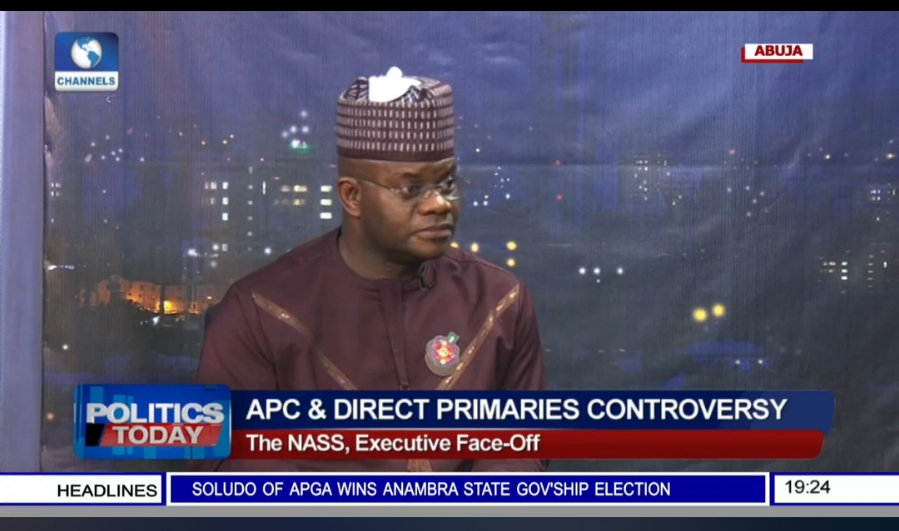
By Jimoh Ogirima Salawu (PhD).
The National Assembly generated no small controversy with its recent passage of the Electoral Act Amendment Bill 2021, which among other things ruled that direct primaries shall be the legal and solitary method by which political parties must now choose their flagbearers in every election.
For the uninitiated, in a direct primary method, all registered members of a political party participate in an open, state or constituency-wide election (witnessed by INEC, according to the new Bill) for the purpose of electing candidates for elections. Meanwhile, in an indirect system, delegates elected by party members vote on their behalf.
Barely minutes passed after the APC-led Assembly passed the Bill that the legislative body, perhaps calculatedly, saturated the press with justifications for the controversial decision using the full gamut of the usual platitudes of ‘inclusiveness’ and – a recent favorite soundbite – ‘bringing the party to the people’. Was there ever a time the party left the people?
In any case, the clear objective was to frame the debate as between the legislators who are for the masses’ involvement in the selection of candidates by the political parties versus other power bases – notable the Governors – who, going by this logic, wish to wield special powers in the process to the exclusion of the people. But as the saying goes, the devil lies in the details.
It once again fell to Governor Yahaya Bello of Kogi State to ask the hard questions and expose the underbelly of the Bill favored by the National Assembly, as well as some of the inherent contradictions contained in the debate framed around it. He did so with exceptional clarity in a recent edition of Politics Day hosted by Seun Okinbaloye of Channels Television.
Setting aside the obvious reality that passing broad, mandatory laws that strip individuals or groups of their power to make a free, legal choice cannot reasonably be considered democracy in action, Governor Yahaya Bello cleverly cited the incident itself to expose the flaw in the argument of the National Assembly that the indirect primary mode amounts to an exclusion of the people.
Representative democracy is literally about the practice of the masses empowering a select group of people – call them delegates, if you prefer – to make political decisions on their behalf. This is the very basis upon which the legitimacy of the National Assembly itself is built, for though it proclaims to ‘speak on behalf of Nigerians’ on all issues, the reality is that representatives do not return to their constituencies to poll every decision before casting a vote. By electing them to the office, constituents trust them to act in their best interests and not until the next election cycle is the totality of their actions reviewed for either continuation or expulsion.
Similarly, party delegates who participate in the indirect party system are selected by members in local elections where they freely make the choice, knowing that the eventual winners of the process will go on to select candidates and perform other roles outlined in the party constitution. It is a process that clearly rests on the people as the ultimate determinants, and so the claim that the imposition of direct primaries as the sole method of candidate selection was intended to correct the ill of exclusion flies in the face of logic and betrays a poor understanding of representative democracy.
In reality, and as Governor Yahaya Bello thus argued, the Bill is merely a reflection of the dissatisfaction of some aggrieved lawmakers who have axes to grind with their state governors and fear that they may be politically outgunned in swaying elected delegates. But the imposition of the direct primaries will hardly solve the problem. Any political figure incapable of persuading party members to put forward delegates favorable to his/her interests is unlikely to survive a direct contest.
Another overlooked but incredibly important point brought to the fore by Governor Yahaya Bello is the cost – in pure finance and logistics – of the direct primary exercise and what the consequences would be for smaller political parties with fewer resources than the two traditional parties of the PDP and APC.
It is unlikely that INEC, which routinely laments fund shortage and manpower deficit, has enough resources to supervise primaries in all the states of the country and for all political parties (there are 31 of them) in a single election cycle. This is in addition to the arduous task of conducting the main election itself. Evidently, for this to be even conceivable, there has to be a substantial increment of INEC’s budget to avoid a logistical nightmare.
But the question Governor Yahaya Bello posed, and which must be on the minds of all Nigerians, is whether parties cannot be left alone to conduct their internal affairs in line with their founding constitution and the wishes of members, thus avoiding the real prospect of devoting declining funds to INEC in the face of other existential threat. NASS threatens to set Nigeria on a path where the country will exist to merely conduct elections.
To discerning Nigerians, it is glaringly obvious that this Bill is an attempt by members of the National Assembly to nationalize a private concern. And as with every private, politically-driven motive, it focused singularly on the desired objective without due consideration of second and third-order consequences. For instance, it failed to take into account situations in which a direct primary may prove impossible, leaving political parties with the real danger of being legally hamstrung and unable to produce candidates for elections.
Governor Bello wisely warned against “boxing the political parties in a corner” and setting the people against the state governments in the process for expressing genuine concerns the National Assembly has failed to accommodate.
Some of those who have hailed this Bill do harbor genuine intentions. They believe it is a faster route to open and transparent internal elections. But reality suggests otherwise and the road to hell is paved with good intentions. A rethink is needed here.

